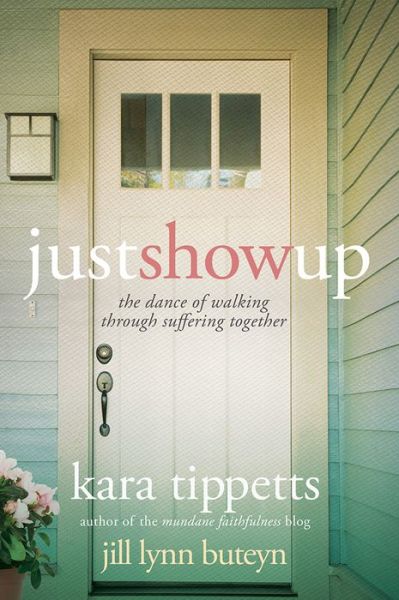from an article originally posted October 6, 2014…
This weekend was a gift. God was gracious to give me the strength to speak in three different sessions. I’m so unbelievably thankful. For me, I felt so blessed to hear three beautiful testimonies from dear sisters. I asked my amazing Blythe if she would speak on our call as followers of Jesus to build community. I asked her to speak from the heart of an introvert. I knew it would be silly, as an extrovert, to ask everyone in the room to join me in community building. And somewhere in our culture, we have decided introverts get a pass on building community. So I asked my dear introverted community builder to partner with me in asking women to build meaningful community together. Blythe is a gift. A gift to our community, and a gift straight to my heart. She has spent the day loving me through texts. She has spent the day capturing my weary heart in texts today. I love you, Blythe. I asked her if I could have her transcript to share; she graciously obliged. Read and be blessed.
From Blythe
Like many of my stories, the story of my introversion begins with my mother. Just as she birthed me into this world, my stories are birthed from this woman whose constant presence gives my young childhood context.Mamma was an extreme extrovert—a Kara extrovert. The kind that exhausts you just from watching her approach people, engage people, make them smile and laugh. Mamma made BFFs with the lady next to her in line at the grocery store, learned our waitresses’ life stories over the course of dinner, won hearts over at PTA meetings with her quick wit, charmed Daddy’s bosses and coworkers with her poise. But more than the obvious social implications of being an extrovert, she used it to create an entire ministry of safety for other women.
My understanding of womanhood begins with Mother and how her behavior modeled grownupness to me. I thought being a woman meant hosting lots of parties and events, welcoming ladies into your home where there was always a pot of hot coffee waiting, and making sure everyone in your home felt safe and valued.
In truth, she was modeling Christianity. Not that Christians have to throw lots of parties, but she showed me the essence of being winsome, inviting, engaging, safe. Mother took the biblical calling of pursuing others seriously, and she used her extroversion to further that pursuit.
Have you ever taken one of those personality quizzes to find out if you are an extrovert or an introvert (as if you didn’t already know!)? There is always a question about how you enter a party—do you instantly become the life of the party, talking to everyone? Do you seek out a few people you know to hang out with? Or, like me, do you retreat to a dark corner, counting the minutes until you can leave?
I was so shy as a child some of my earliest memories are very dark. They are dark because I spent a great deal of time with my head up Mamma’s skirt or blouse. I don’t remember her wearing shirts—I think she exclusively wore blouses; it was the early 80s, after all.
At some point I stopped hiding in Mother’s blouse, but she remained my safe place. Mamma never shamed me for being shy. She never told me I was wrong to want to hide from people; she seemed to understand the physicality of the fear that gripped me when faced with an unsafe social situation, how I froze in trepidation in certain settings. And although she never shamed me, I felt less-than because I was shy. An introvert. Mother had an entire ministry based on her extroversion and her ability to reach out to others. I saw her create a safe place both literally and figuratively for hundreds of women throughout my childhood. She always knew what to say, how to say it. And she spoke with confidence and boldness—a certainty that reaching out to someone in love was always the right thing to do. She was my primary role model; I knew from a young age I wanted to be a safe place for others, but how could I embrace other women if I could barely make small talk with the checker at Target?
If you are a friend of Kara’s or a reader of her blog, I’m pretty sure you’ve had a thought like this at some point over the last couple of years: If I got sick, who would care for me like Kara’s friends have cared for her? In my case, I probably have four or five friends I could count on. Kara seems to have four or five hundred. It’s wonderful! She knows how to create community by reaching out in honesty.
I know how to sit in my house alone with my book, eating pumpkin bread.
I’m just kidding. I know how to create community, too! I may hide when the doorbell rings, struggle to make eye contact with you at church, and choke down fear if you actually talk to me, but one thing I have in common with my mother and with Kara—I know and understand the importance of community, of friendship, of safety, of love. Those things don’t happen in isolation. I have learned—the hard way—that I can’t sit with my pumpkin bread in my cozy bungalow and expect community to happen. I can’t blame others for not reaching out when I have cowered from attempts in the past and am unwilling to move toward people. I can’t expect others to do all the work of relationship until I somehow magically feel safe enough to reach out.
What I have learned is that community doesn’t happen on its own. Extroverts aren’t exclusively called to reach out to others. Shyness is never mentioned in the Bible, nor is introversion a spiritual gift. Extroversion is not a spiritual gift, either.
If you are a Christian, you are called, through Scripture, to reach out to others, to love them, pursue them, befriend them, care for them. This is not an easy calling; it is risky and involves being vulnerable, sharing your heart before you’re certain it’s safe to do so, facing the possibility of rejection. As Kara can tell you, being an extrovert does not make taking these risks any easier, and as I can tell you, being an introvert does not give me an excuse to not take these risks.
What being an introvert does do is give me special insight into a certain kind of person—I understand the child who can’t bear to make eye contact, the man at church who breaks out in a sweat during the greeting time, the woman at lunch at the retreat who is painfully awkward at chatting with the other women at her table.
This, my friends, is God redeeming my introversion. He has shown me that this quality has purpose in the insights it has given me into others, the compassion and empathy I have for certain people, the courage I muster from understanding the unbearable shyness some people deal with. Introversion doesn’t let me off the hook; it calls me to whisper into the quiet places of quiet women’s hearts. What a gift and a joy. This privilege of safe-keeping women’s hearts trumps my fear of engaging.
Watching my mother taught me something very important—how to love others. I probably won’t learn my waitress’s life story, but when I go to a party, I will always notice the person hiding in the corner.
KARA'S COLLECTION: GRACE IN THE MUNDANE
This is part of a series reposting Kara's blog articles beginning August 2, 2012. Learn how you can be a part of her online legacy.







